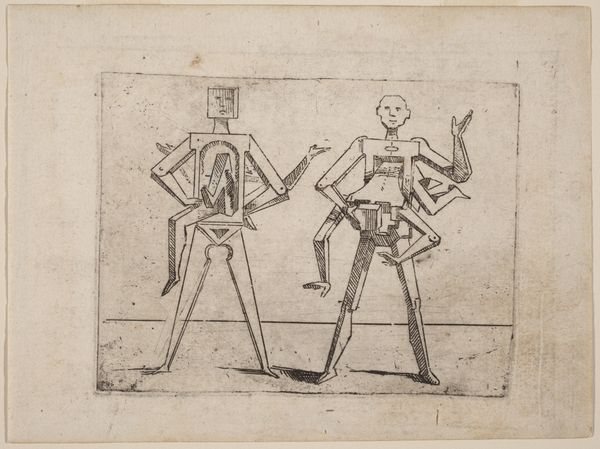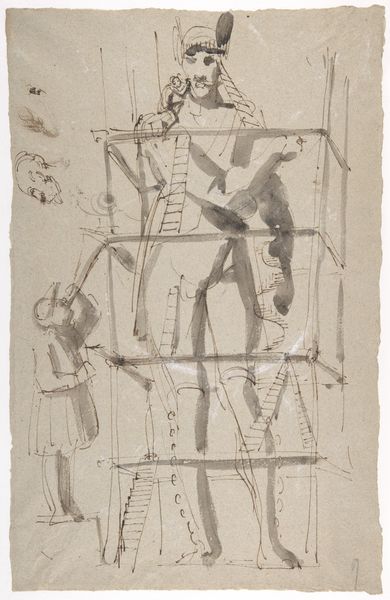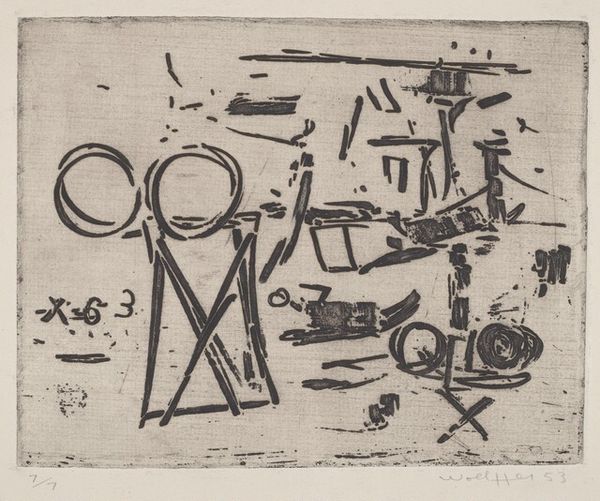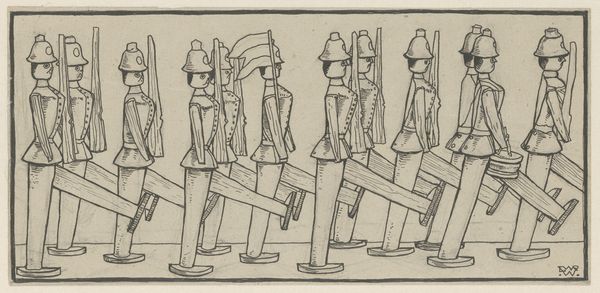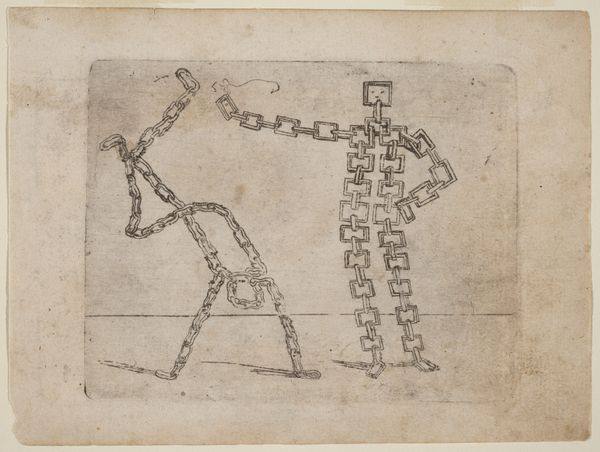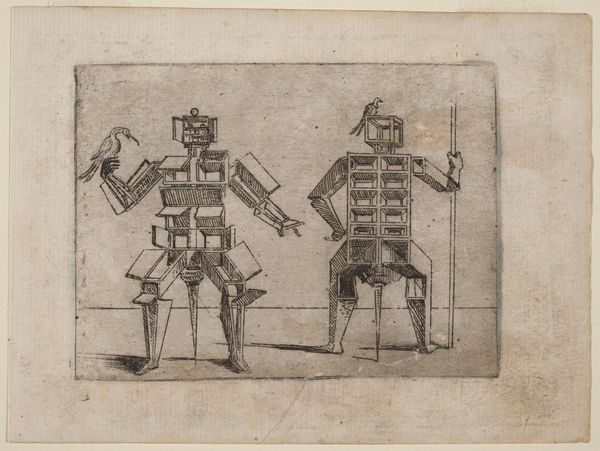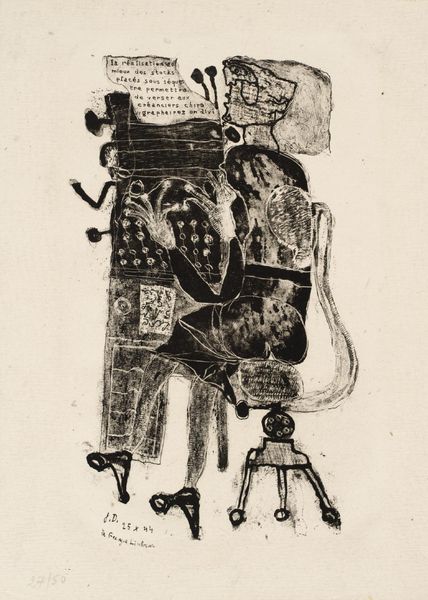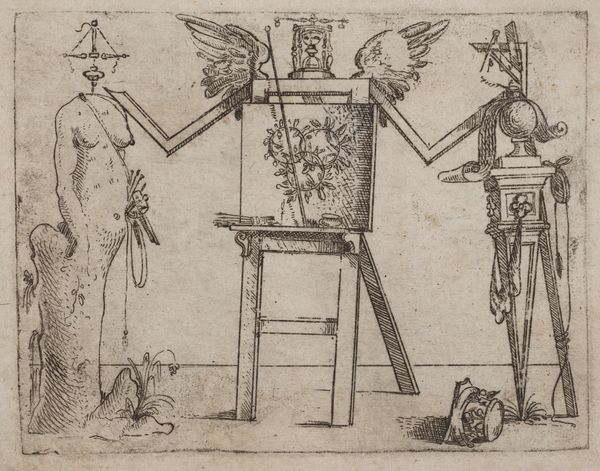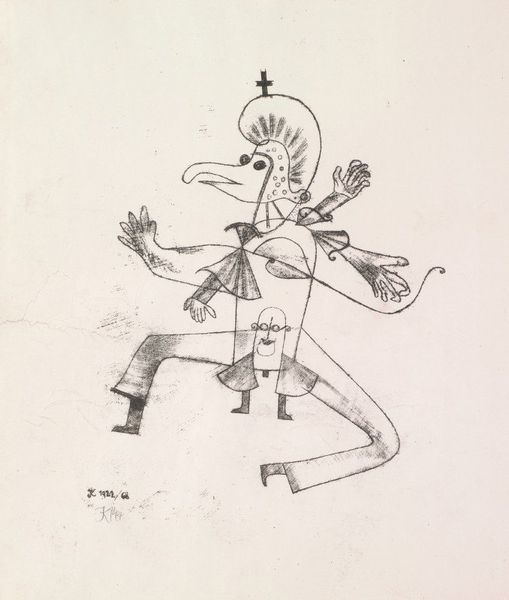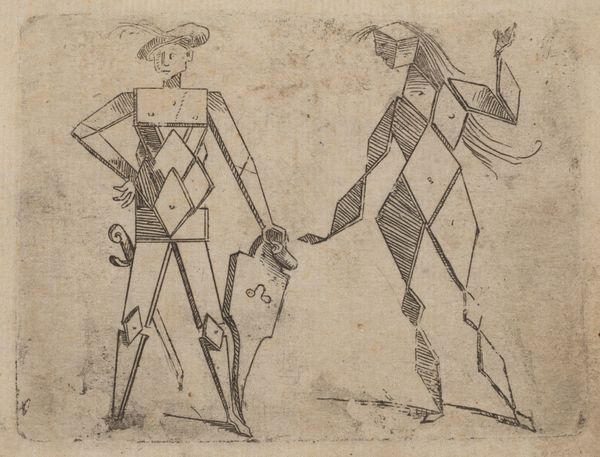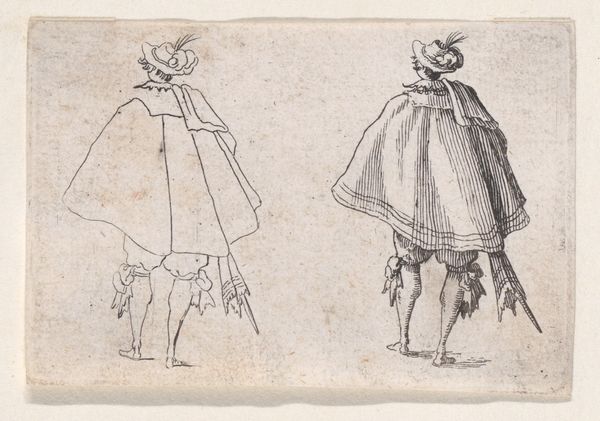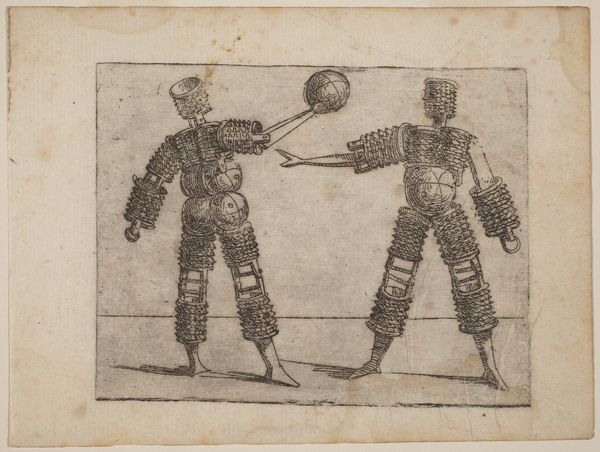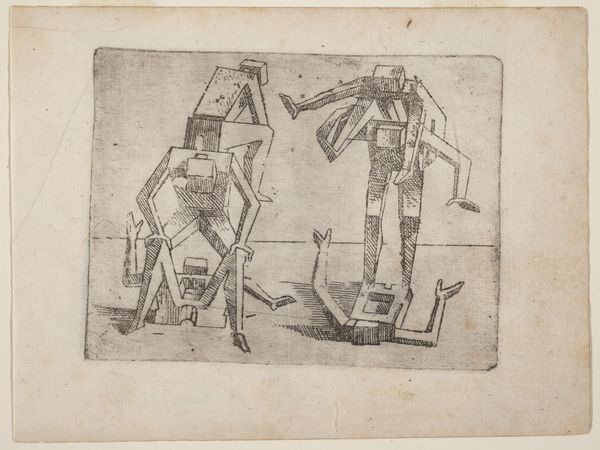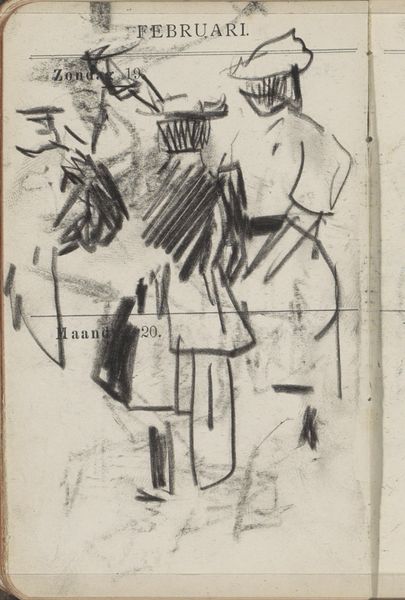
drawing, print, engraving
#
drawing
#
toned paper
#
light pencil work
#
quirky sketch
#
narrative-art
#
baroque
# print
#
sketch book
#
incomplete sketchy
#
figuration
#
personal sketchbook
#
sketchwork
#
pen-ink sketch
#
line
#
sketchbook drawing
#
sketchbook art
#
engraving
Dimensions: plate: 8.5 x 10.9 cm (3 3/8 x 4 5/16 in.) sheet: 11.2 x 15 cm (4 7/16 x 5 7/8 in.)
Copyright: National Gallery of Art: CC0 1.0
Editor: So, this is Giovanni Battista Bracelli’s "From 'Bizzarie di varie Figure'," made in 1624. It's a print, or engraving, that kind of looks like a whimsical fashion sketchbook. There’s a quirky and sort of dreamlike quality about it. What strikes you when you look at this, something about these peculiar figures constructed from objects? Curator: Ah, Bracelli. His work is a marvelous menagerie of the unexpected! These aren't just sketches; they are bizarre inventions, beings born of pure imagination. Notice how he uses lines not just to define shapes, but to suggest weight, texture, and even character? The figure with the bucket head, for instance, appears almost mournful, weighed down by the tools that comprise him. While the second figure has that shawl like an haute couture queen. Don’t you think there’s a touch of melancholy mixed with humor? Editor: Definitely. Melancholy, maybe from feeling like we're defined by our possessions? And there's definitely humour with that buckethead. Where do you think he got his inspiration, aside from his own boundless creativity? Curator: One imagines Bracelli pulling inspiration from the everyday, transmuting ordinary objects into extraordinary beings. But there is more to it than meets the eye. Remember the period. Think Mannerism bleeding into early Baroque. There was a penchant for the strange, the inventive, the allegorical. It’s visual poetry! A way to both delight and perhaps subtly critique the human condition, which do you see? Editor: I can see both, especially considering all these items we attribute our identities to, the poetry comes through via those characters with geometric components. Curator: Exactly. It becomes a study of form, personality, and, ultimately, our strange human desire to create meaning from the mundane. Thanks, editor, that helped me get a clearer sense of how it's been viewed. Editor: Agreed! This was an amazing discussion; Bracelli's work now feels way less like an abstract concept and more like a clever commentary.
Comments
No comments
Be the first to comment and join the conversation on the ultimate creative platform.
